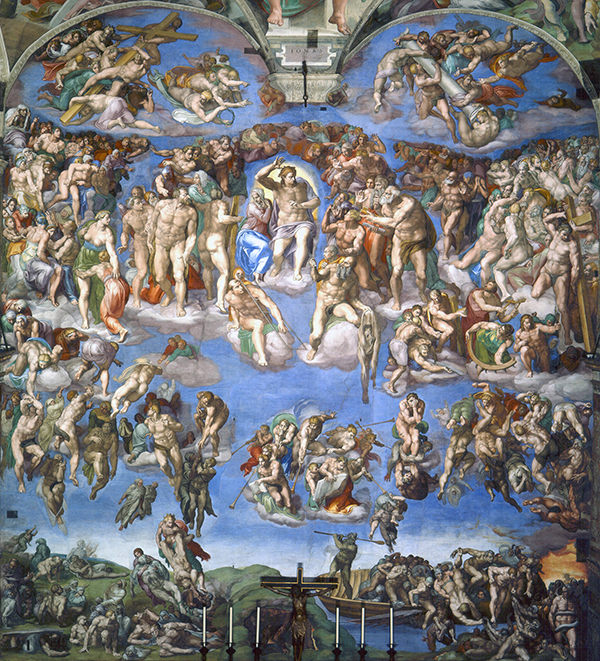
(Photo: Wikimedia Commons)
Teaching the philosophies of existentialism and personalism for many years, I think has deepened my understanding of freedom. Because freedom is one of the mysterious gifts that God has given to us, I don’t claim to understand the mystery of freedom completely. Still, I think reading and teaching some great philosophers has helped me go more deeply into the meaning of freedom and the central role it plays in the development of the human person.
Recently I was re-reading a small book that I very much like, and I think it presents a view of freedom that Pope Francis embraces. The book is “Poverty of Spirit” (New York: Paulist Press, 1968) by Johannes Baptist Metz. On the first page of his text Metz writes the following: “We … are challenged and questioned from the depths of our boundless spirit. Being is entrusted to us as a summons, which we are each to accept and consciously acknowledge. We are never simply a being that is “there” and “ready-made,” just for the asking. From the very start, we are something that can Be, a being who must win selfhood and decide what it is to be. We must fully become what we are — a human being. To become human through the exercise of our freedom — that is the law of our Being.” (p. 3)
Metz is saying that not every free act is necessarily a good act. There is a meaning in human existence put there by God. Often philosophers and theologians refer to this meaning as the Natural Law. Our existence’s goal is to freely choose to be the type of person that God wishes us to be. We can freely choose to develop as images of God, or we can freely choose to go against the most profound meaning God has planted in us.
When we voluntarily choose to follow God’s plan, we become freer; when we freely choose self over God, we are freely choosing against our own freedom. Unfortunately, some in the contemporary world believe that freedom means choosing to do whatever you feel like doing. Metz reminds us that becoming freer is a lifelong task, a task that should be a response to the summons placed within us by God. Becoming human is a lifelong task of freely choosing to discover and respond to God’s summons to become human.
I think the view of freedom that Pope Francis presents in “Fratelli tutti” beautifully complements Metz’s view and those personalist thinkers such as Martin Buber, Gabriel Marcel, Emmanuel Mounier, and W. Norris Clarke, S.J. The Holy Father writes the following:
“Human beings are so made that they cannot live, develop and find fulfillment except ‘in the sincere gift of self to others.’ Nor can they fully know themselves apart from an encounter with other persons. ‘I communicate effectively with myself only insofar as I communicate with others.’ No one can experience the true beauty of life without relating to others, having real faces to love. This is part of the mystery of authentic human existence. ‘Life exists where there is bonding, communion, fraternity; and life is stronger than death when it is based on true relationships and bonds of fidelity. On the contrary, there is no life when we claim to be self-sufficient and live as islands: in these attitudes, death prevails.’
“In the depths of every heart, love creates bonds and expands existence, for it draws people out of themselves and towards others. Since we were made for love, in each one of us ‘a law of ekstasis’ seems to operate: ‘the lover goes outside the self to find a fuller existence in another.’ For this reason, ‘man always has to take up the challenge of moving beyond himself.’ ”
What Pope Francis is saying calls for serious reflection. I think each of us should think about his insights and check them out in relation to our own experience. The pope is claiming that I can only become the best Robert Lauder possible by giving myself away. I can only find out who I am by finding out who the other is. We are tied together in the deepest way. My self-knowledge and self-development as a free person depend on how I treat others and how deeply I know them.
I believe that the pope is saying that the more deeply I know the other, a depth that requires my self-gift to the other, the more deeply I can know myself. He is also saying that the more deeply I know myself through my free choices, the better chance I have of coming to know the other. I think what Pope Francis is saying is awesome.
Equally important to it being awesome, it is beautiful. Equal to it being beautiful, I believe it to be profoundly true. I suspect I will be thinking about the pope’s words for a long time.
Father Lauder is a philosophy professor at St. John’s University, Jamaica. He presents two 15-minute talks from his lecture series on the Catholic Novel, 10:30 a.m. Monday through Friday on NET-TV.
